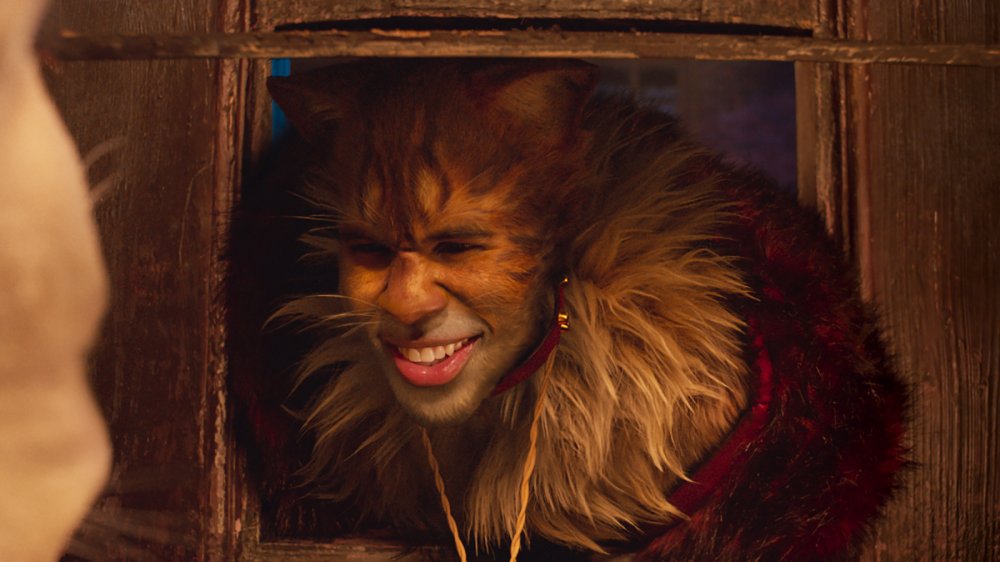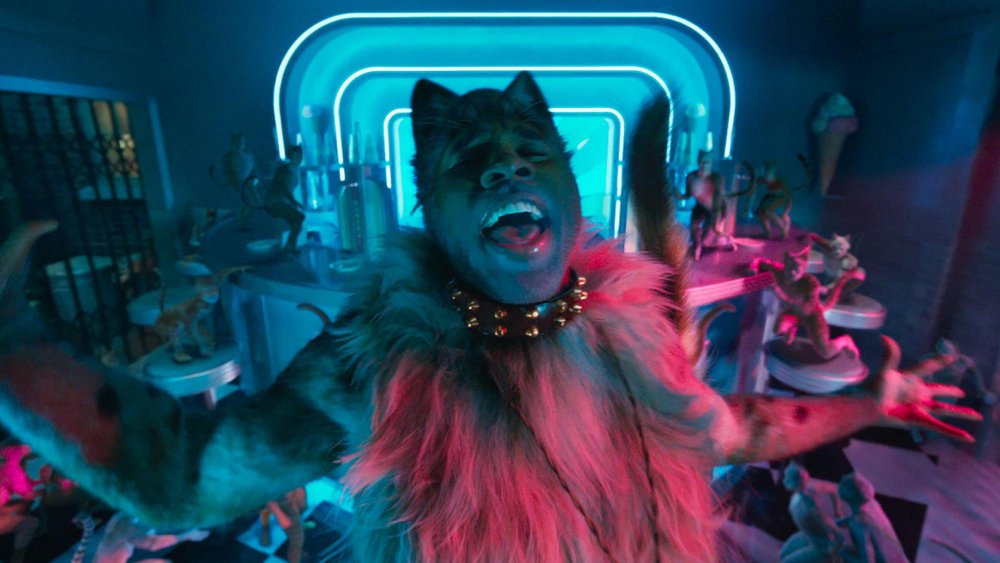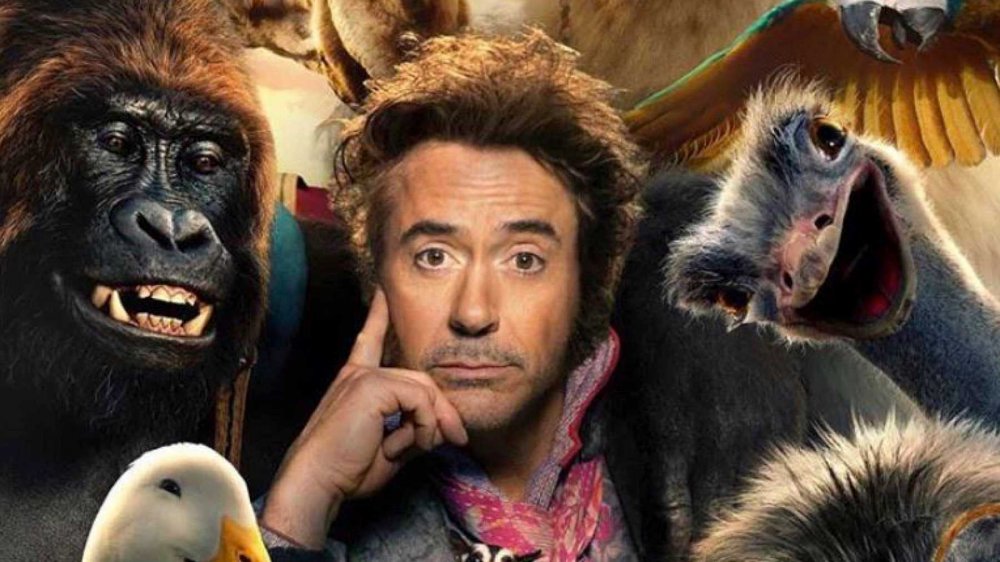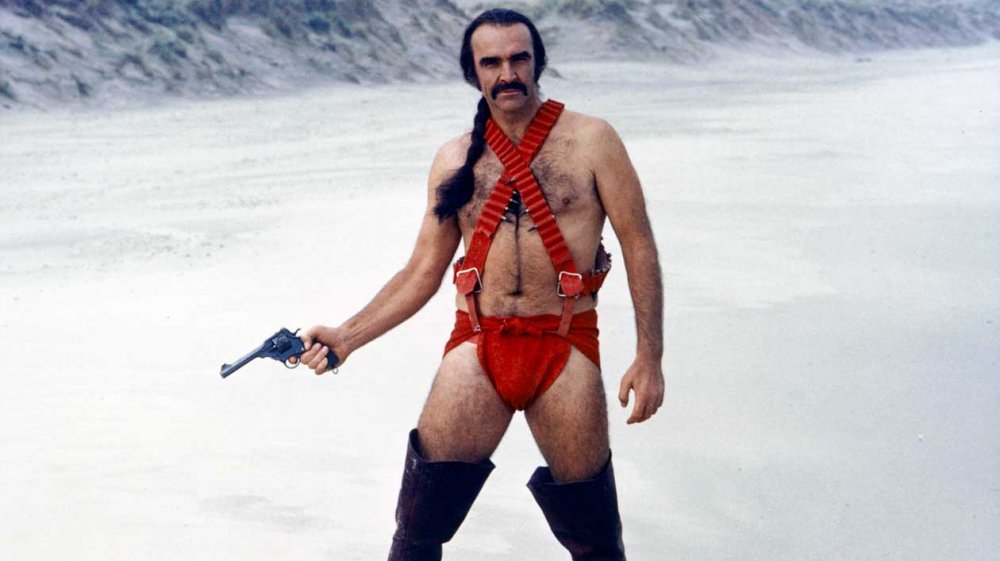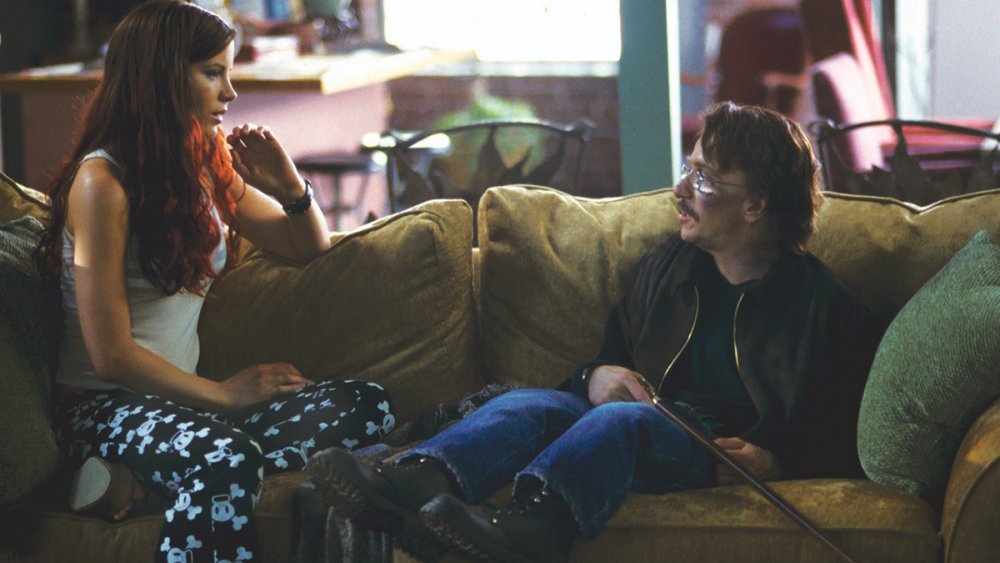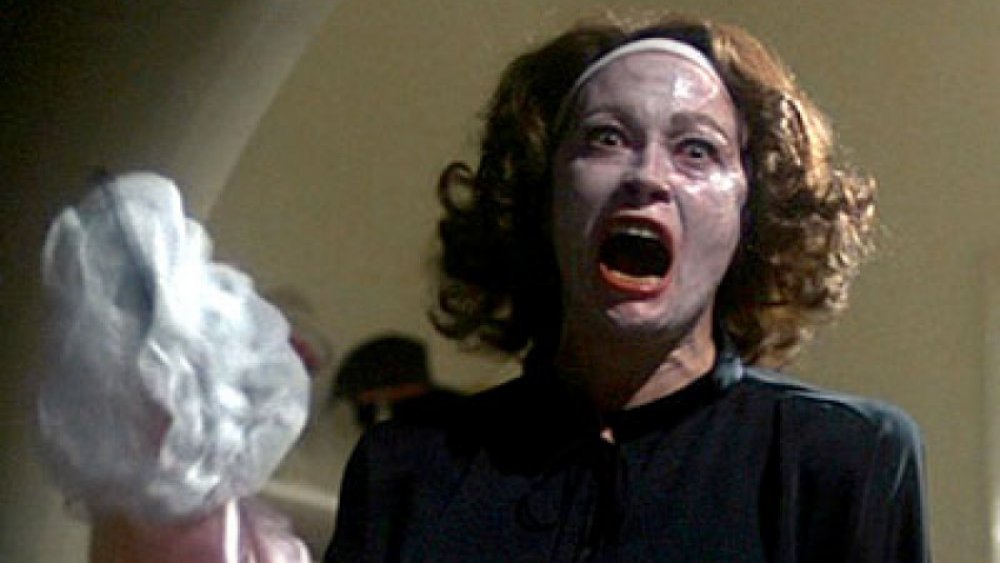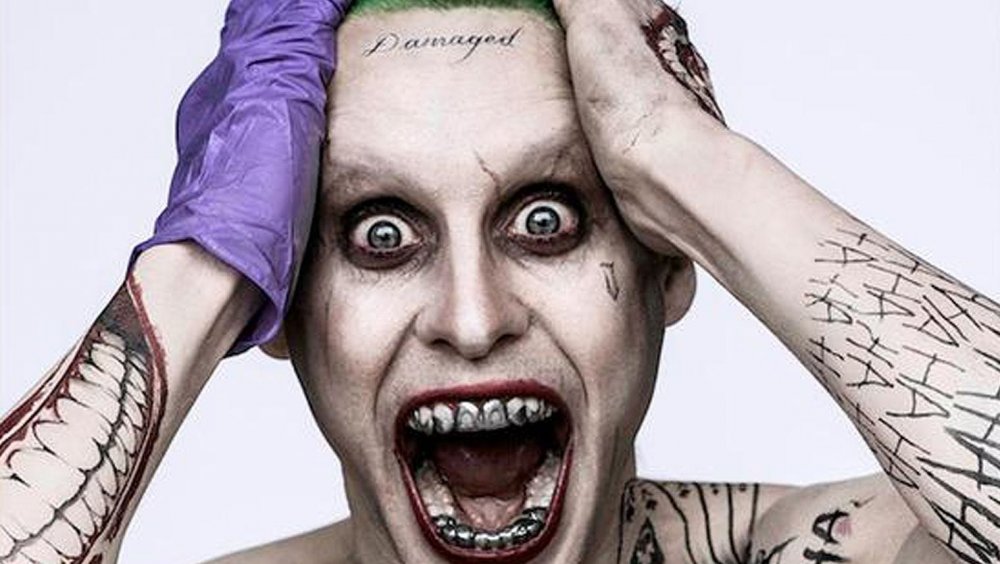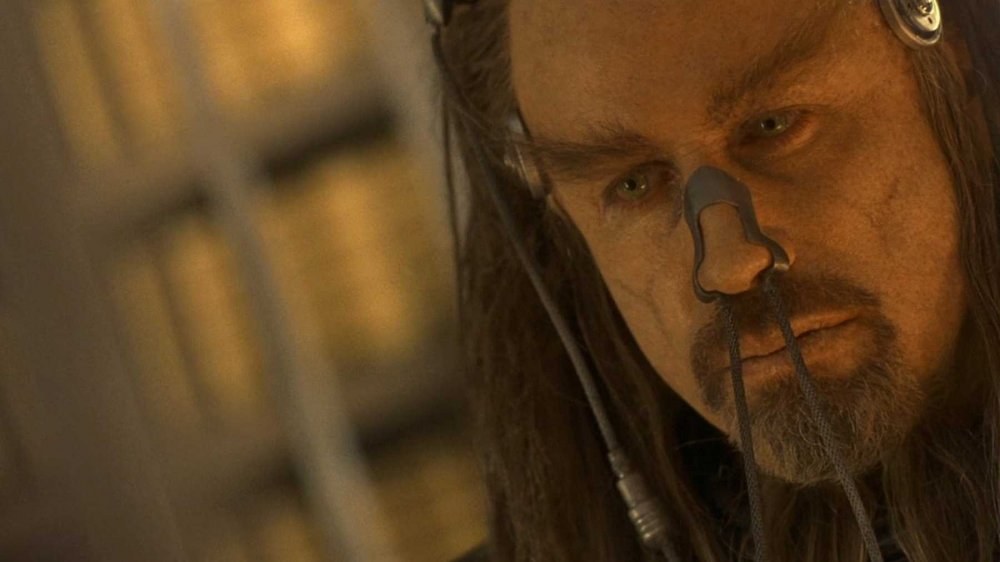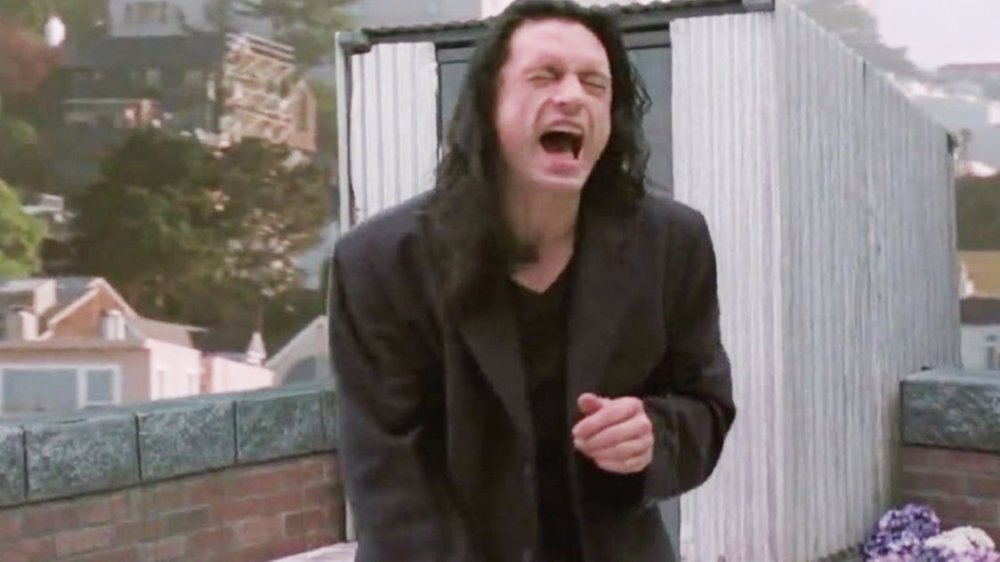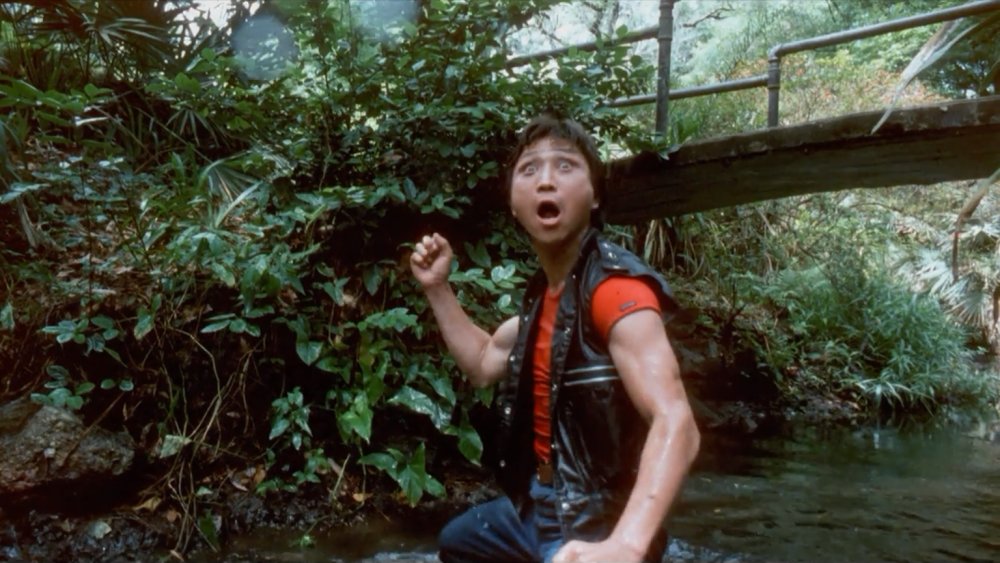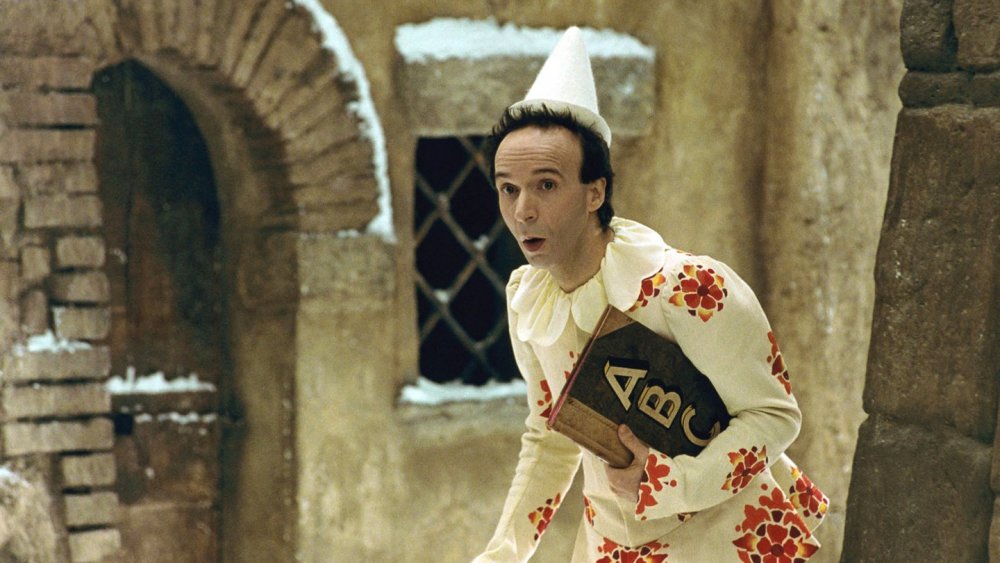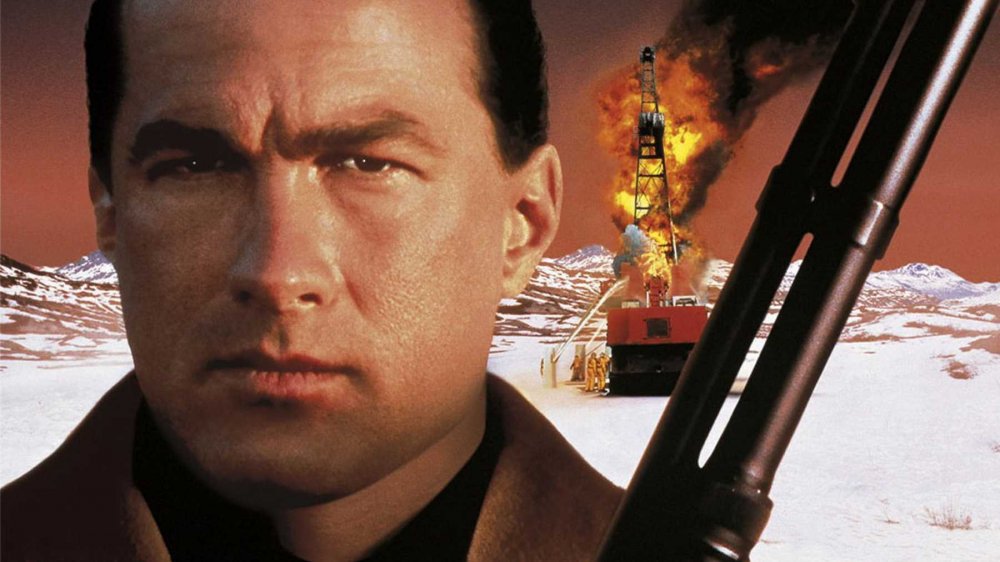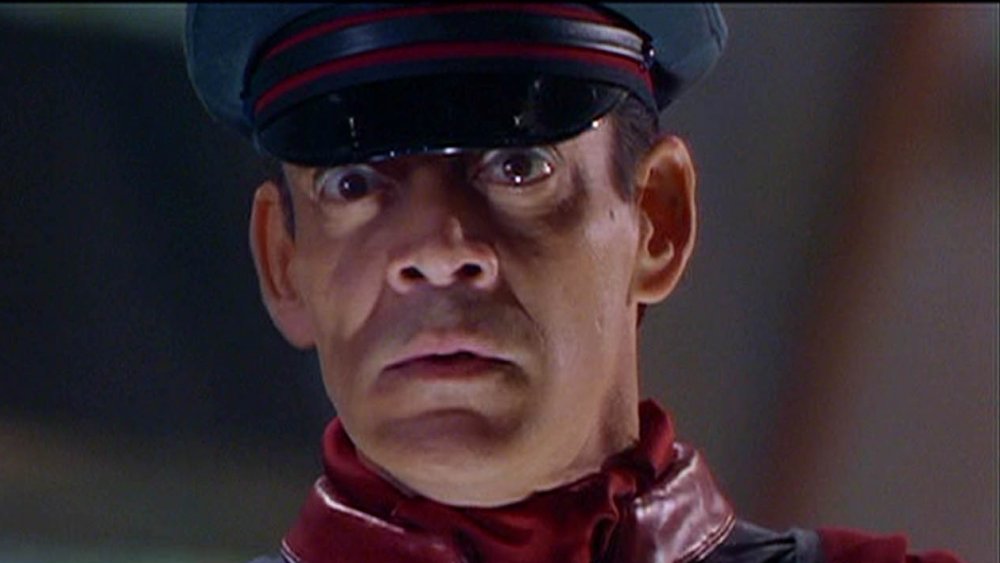These Actors Had No Idea Their Movies Were Terrible Until It Was Too Late
Secondhand embarrassment can be a powerful thing — and it's never more skin-crawling than when someone doesn't realize how much they're embarrassing themselves. Somebody belting out karaoke off-key at the top of their lungs. A groom walking down the aisle with a big brown stain on his tux. Or an actor giving it their all in a terrible, terrible movie.
No one ever sets out to make a bad movie (setting out to make a movie that's so bad it's good doesn't count). If anyone is willing to put themselves through the enormous ordeal of guiding a film from screenplay to distribution, they need the conviction that the results will be, at bare minimum, adequate, just to get it made.
And many filmmakers, from the producers on down to the cast, believe it'll be much more than that — that it'll change the world and be loved by generations yet unborn. The sad fact is, just by the numbers alone, most of them are bound to be wrong. The sci-fi writer Theodore Sturgeon famously defended the genre against critics saying it was mostly crud by proposing "Sturgeon's Revelation": "Ninety percent of everything is crud."
The following list shows what happens when actors believe just a little too hard in the wrong nine-tenths of their projects. Crud is in the eye of the beholder, but all of these movies were so unanimously hated it's hard to think of a better word for them. Here's a look at some actors who had no idea their movies were terrible until it was too late.
Jason Derulo - Cats
Cats Is the kind of mega-disaster that only comes along once in a generation, but apparently no one told the cast. The day before the first trailer blew up the internet by revealing its vaguely catlike Dr. Moreau monstrosities to the world, they sat down for a behind-the-scenes teaser full of hyperbolic hype like, "At the center of this incredibly entertaining, comedic, fantastical musical is a very timely story about the importance of inclusion and redemption."
All that seems a little bit much for a movie about cats jumping around and singing about "jellicles," but every actor and director is expected to overpraise their new project. That, as they say, is showbiz. But it was a lot more than that for pop star Jason Derulo. Even after the trailer was universally mocked, Derulo said, "Like, I know some people saw it and they were terrified, but I got chills down my spine! I thought it was gonna change the world."
The rest of the world disagreed. Cats became one of the biggest bombs of the new millennium and inspired a cottage industry of takedowns. That same interview shows Derulo finally realized Cats' terribleness nearly a year later, saying, "If you find yourself dancing on a giant barstool pouring milk on a bunch of human beings who are also dressed like horny kitty cats, self-interrogate."
Rex Harrison/Robert Downey Jr. - Dr. Dolittle
Based on the classic children's books by Hugh Lofting, Dolittle features Robert Downey Jr. giving his all as a scientist who learns to talk to animals, including a disastrous attempt at a Welsh(?) accent. He seems to take it all far too seriously for a movie that requires him to talk with wisecracking critters and pull some bagpipes out of a flatulent dragon's rectum. But not only was he aware of these baffling creative decisions — he insisted on them! It's entirely possible Downey only has himself to blame if this torpedoes his career.
But then, all the signs were there, because the Dolittle boondoggle is a case of history repeating. Over 50 years earlier, another Dolittle adaptation was one of several big-budget spectaculars that bombed so catastrophically they almost killed the whole industry. And at the center of it all is Rex Harrison, playing Dolittle with dignity and deadly seriousness, even when he's talking to a two-headed llama. In fact, he allegedly took the role so seriously he aggravated the production's disastrousness, insisting the cast perform their songs live on-set. But then, a set full of shenanigans like a giraffe delaying shooting by a whole day by stomping on its own genitals didn't exactly need the help.
Sean Connery - Zardoz
In the early '70s, a new kind of film industry rose from the ashes, one in which young directors were given free rein to follow their muses. But while that environment produced masterpieces like Taxi Driver and Apocalypse Now, it had some disasters of its own. Take Zardoz, which tells the story of a post-apocalyptic earth divided into immortal Eternals and violent Brutals, who worship the titular giant floating stone head which flies around with a cartoony grimace hilariously frozen on its face. Even its director, John Boorman, says "When I see the film now I'm astonished at my hubris in making this extraordinary farrago."
Its star, Sean Connery, doesn't seem to have noticed. He plays the hero, Zed, with grim seriousness, even when he's outfitted in a bright red jockstrap, ridiculous ponytail and even more ridiculous handlebar mustache or a lacy, white wedding dress. He told Films and Filming, "It was one of the best ideas I'd come across for ages." It seems the former James Bond has learned his lesson since, even if he might have taken it too far — he later turned down Lord of the Rings and The Matrix because he "didn't understand" them.
Gary Oldman - Tiptoes
Gary Oldman has played many classic roles in his career, from icons like Dracula to appearances in blockbuster franchises like Batman to his Oscar-winning performance as Winston Churchill in The Darkest Hour. But what does the Tiptoes trailer declare his "role of a lifetime?" Shuffling around on his knees to not-quite convince audiences he's a dwarf.
Tiptoes makes it impossible to ignore the sheer offensiveness of having Oldman play dress-up as a marginalized minority, surrounding him with veteran dwarf actors from Michael J. Anderson (Twin Peaks) to Peter Dinklage (Game of Thrones). Dinklage's presence raises the much-asked question of why he couldn't get Oldman's part, but instead is wasted in a truly inexplicable role as a Marxist biker dude with a Hulk Hogan handlebar mustache and a Pepe Le Pew French accent.
Tiptoes is such a uniquely misguided movie that even those decisions are only part of its strange, strange whole. The trailer went viral for its sudden pivot from wacky comedy to awards-bait drama, but that turned out to be truth in advertising. Tiptoes careens wildly between overheated soap opera and deadly earnest message movie, often stopping dead to lecture audiences about the reality of dwarfism. The filmmakers seem desperate to make sure we believe their hearts are in the right place. But that's pretty hard to do with Oldman running around — not to mention that title.
Faye Dunaway - Mommie Dearest
In 1981, Mommie Dearest was supposed to raise awareness of child abuse and net Faye Dunaway a second Oscar. At the time, it probably seemed reasonable. After all, Dunaway was one of the most iconic actresses of her generation thanks to films like Bonnie and Clyde, Network, and Chinatown. Unfortunately, it didn't work out that way — thanks in no small part to Dunaway's own screamingly over-the-top performance.
In Mommie Dearest, Dunaway plays Joan Crawford — herself no stranger to taking silly movies very seriously later in her career with B-horrors like Trog and Strait-Jacket. The movie adapts Crawford's daughter Christina's memoir, focusing on the abuse she suffered at her mother's hands. There's no question the content's serious, but the campy presentation is anything but. As Christina's husband David Koontz allegedly pushed her away from her more nuanced instincts, Dunaway turned Joan into a character straight out of the funny pages.
Audiences laughed Mommie Dearest out of theaters. Even the studio turned on it, pivoting to marketing it as a comedy with a poster that blew Dunaway's line "No wire hangers ever!" bigger than the title in response to the overwhelming response to her over the top delivery and added the punny tagline "The mother of them all!" Since then, Dunaway has recanted her earlier high hopes for the film, telling People, "It's unfortunate they feel they had [to] make this kind of movie."
Jared Leto - Suicide Squad/Chapter 27
Many actors throw themselves into roles that don't deserve the effort, but Jared Leto tends to obsess over his performances so much it would be hard to justify either way. Take Chapter 27, in which Leto plays Mark David Chapman, the man who killed John Lennon. If you've never heard of it, you're not alone: few people saw it, and the ones who did agree it's mediocre to awful. But Leto still threw himself into it, gaining 67 pounds with a diet of sludge mixed from ice cream, soy sauce, and olive oil. If you needed proof there's two kinds of people, there it is.
But that was nothing compared to his performance as the Joker in Suicide Squad. Possibly inspired by Heath Ledger's posthumous Oscar glory in The Dark Knight, he somehow convinced himself that a comic book kill clown deserved all the seriousness of The Godfather. He stayed in character 24/7, doing things even the Joker would find depraved like sending his castmates dead pigs. It turned out to be all for nothing: The scramble over the final edit cut his role down to a glorified cameo, and for all Leto dove into the role, all he came up with was a bad Jim Carrey impression.
John Travolta - Battlefield Earth
Some actors believe in their terrible movies more than the filmmakers do. Take John Travolta, a committed Scientologist who spent most of his career trying to bring Scientology founder L. Ron Hubbard's sci-fi novel Battlefield Earth to the big screen. "Battlefield Earth is the pinnacle of using my power for something," he said — you'll notice he didn't specify something good. The result is a camp classic, with stars reading dialogue like "I'm gonna make you as happy as a baby Psychlo on a straight diet of kerbango!" with much more conviction than they deserve.
That goes double for Travolta himself. As Terl, an alien conqueror who tries to put the primitive remnants of humanity to work mining gold for him, he wears a prosthetic conehead, two shoelaces shoved up his nose, and big, rubbery werewolf paws. It would be hard for any actor to come out of this role with his dignity intact. Travolta certainly doesn't, delivering every line (including classics like "You are out of your skull bone if you think that I am going to write on the report 'shot by man-animal' as the cause of death!") with the pitch and volume of a yapping chihuahua and a vaguely British...ish accent.
Tommy Wiseau - The Room
Some actors take their terrible ideas so seriously that they cut out the middleman and run the whole show themselves. These stars are likely to never realize how terrible their movies are until it's far too late, if ever. Even as the evidence becomes impossible to ignore, they press on in willful denial.
Just take Tommy Wiseau. No one seems to know where he came from (his unplaceable accent certainly doesn't help) or how he got the money to make his own movie. But make it he did, and it was a vanity project without compare. In The Room, he lives out his fantasies as Johnny, the man who has everything: lots of money, a beautiful girlfriend named Lisa, and lots of friends, none of whom ever shut up about how wonderful he is or beautiful Lisa is. But it falls apart when Lisa decides she wants more and cheats on him with his best friend Mark.
While everyone else involved in it knew exactly how terrible this movie would be, Wiseau was apparently immune to reality. Long after the movie went viral, Wiseau has continued believing in it, claiming at one time or another that it's a searing psychological study or that he meant it to be funny all along.
Y.K. Kim - Miami Connection
Y.K. Kim has had a long, successful career as a hugely popular martial arts grandmaster. But he had a dark secret that had almost ended his career before it even started: He tried to make himself a movie star.
Miami Connection is so unique it seems unfair to call it terrible. It's certainly never less than entertaining, even its greatness is inseparable from its terribleness. Kim plays a member of a martial arts/rock group called Dragon Sound. The wholesome earnestness of Dragon Sound's music can be hard to resist, even if it sometimes turns into sugary sludge — with lyrics like "Friends to eternity/Loyalty, unity/Stick together/'Cause we're born to win!" a rival rocker is right to dismiss them as "music for kids."
And yet it all ends in a bloodbath. Imagine if an episode of My Little Pony had its last act swapped out for Saw. In light of that, it's a little hard to take the ending moral that "Only through the elimination of violence can we achieve world peace" seriously — especially since all it means is that we need to achieve world peace to achieve world peace.
Kim ended up finding out his movie was terrible the hard way when he discovered after it was finished that no distributor would touch it. He successfully put Miami Connection behind him and never expected to hear from it again. When Alamo Drafthouse tried to contact him about rereleasing it, he assumed it was a prank and hung up — multiple times.
Roberto Benigni - Pinocchio
Roberto Benigni was a man with a dream, and that dream was to be a grown man who played Pinocchio. After his film Life Is Beautiful won an Oscar, he was able to realize that dream. He had spent years trying to get his Pinocchio made, collaborating with Federico Fellini, the master filmmaker behind classics like La Dolce Vita and 8 ½. Fellini's gonzo imagination would have been a perfect fit for the material, but he died before he could begin shooting, leaving Benigni in charge.
The result was universally loathed. The American dub added narration that invited viewers into a magical world where "animals can speak, a child can look like a grown-up, and very often grown-ups can act like children," but the audience wasn't having it. They found Beingni's prancing, giggling performance more creepy than charming, even more so when he was dubbed by the high-pitched voice of Breckin Myer.
Years later, movie buffs are still haunted by Pinocchio, to the point that just seeing him as Gepetto in the trailer for Matteo Garrone's subsequent adaptation is enough to set off warning bells.
Steven Seagal - On Deadly Ground
In 1997, with hits like Above the Law, Hard to Kill, and Under Siege behind him, it still seemed like Steven Seagal could do no wrong. But then he proved he could do very, very wrong.
Seagal used his clout to take the reins of On Deadly Ground, the first and last movie he ever directed. Seagal plays Forrest Taft, an oil industry troubleshooter and the only thing standing between the wilds of Alaska and environmental catastrophe. The message is admirable, or would be if it wasn't delivered with all the tact and courtesy of a shotgun blast to the face. And that's before the film ends with Seagal literally giving a multimedia presentation on conservation — one that ran for 40 solid minutes before saner minds somehow talked him down.
But it's clear the green message is far less important than the movie's real moral: Steven Seagal is the greatest man who ever lived. It's all anyone can talk about, from Michael Caine's villain calling him "the patron saint of the impossible" to a random closeup of an extra saying "He's so haaawwwtt!" as he beats up a barfly. The local Inuit tribes all but anoint him their messiah. On Deadly Ground proved he was anything but infallibly godlike: its disastrous performance bumped Seagal down to the direct-to-video minor leagues, where he remains.
Raúl Juliá - Street Fighter
Sometimes actors don't know their movies are terrible until too late. Other times they just don't care. Raúl Juliá is best-remembered now for his roles in The Addams Family and Kiss of the Spider Woman, but his legacy goes far beyond that, playing characters like Don Quixote and Mack the Knife in a stage career that spans decades. So it might seem odd at first that his final role would be a cartoony supervillain in a little-loved video game movie, but he knew he was dying of cancer when he made the film as his final gift to his Street Fighter-loving grandkids.
Street Fighter is not a great film. Along with Super Mario Bros., it set a reputation for video game movies as garbage that the genre still hasn't overcome. But even as he was dying, Raúl Juliá refused to give anything less than his all, and he nearly redeems Street Fighter all by himself. He sinks his teeth into every line, making lines like "For you, the day Bison graced your village, was the most important day in your life. But for me, it was Tuesday" and even the simple phrase "Of course!" so memorable that they continue to live on in meme form to this day. No actor can get a good movie every time. But they should all hope to make their own contributions as good as Juliá's.
